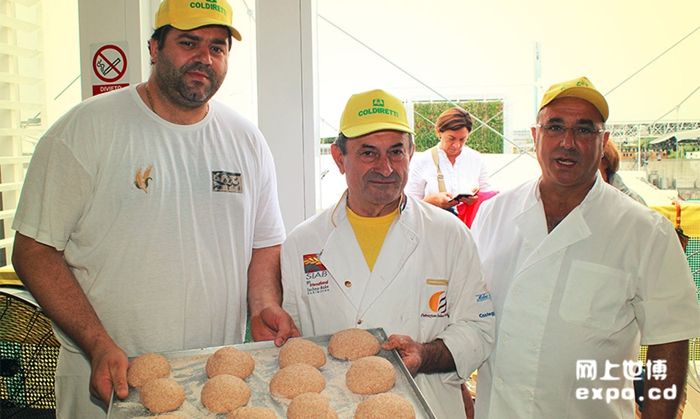
Almost half of the Italian population (46 percent) eats the bread that is left over from the day before. This piece of information was disseminated by Coldiretti Lombardia during the conference “Food abundance: wealth or waste?” which took place on Monday August 10, at the Coldiretti Pavilion in Expo Milano 2015 with the participation of Marco Lucchini from the Food Bank, Francesco Castellotti of Federconsumatori, Wilma Pirola Manager of Donne Impresa Coldiretti Lombardia, Silvia Furiosi of the Brothers of St Francis Foundation and Ambrogio De Ponti, President of Unaproa.
One of the long-term effects of the crisis which has struck Italian families since 2008 is the tendency to reduce waste. The morning event was an opportunity – explains Coldiretti Lombardia – to think about how Italian consumer habits have changed. Indeed, according to a survey by Coldiretti/Ixè, 75 percent of families are more careful when shopping for groceries, 56 percent reutilize leftovers and 37 percent have reduced the quantities they purchase. All in all, six Italians in 10 have reduced the amount of waste they produce, even if 76 kilos of food per capita still ends up in the garbage.
The higher the income, the more is spent on food
“The main novelty in the consumer habits of Italians since 2008 – Francesco Castellotti of Federconsumatori tells us – is that once food consumption accounted for most of the money spent by poorer families, whereas that percentage was lower in wealthier families. Instead, today there is a direct proportion between a family’s income and the share of that spent on food products: practically speaking, the better off a family is, the more it spends on food”.
“This could be explained – Marco Lucchini of Food Bank suggests – by the fact that people’s requirements have changed and that today the only things that people do not consider reducing are the costs of their home and their bills. We can see that very poor families are not generally worried about food, as they know that when it comes to getting enough to eat, there is an aid network out there that they can rely on. Instead, food has become a sort of fashion for the higher social classes and for some of them it is almost a game”.
A booklet all about bread
Indeed Donne Impresa of Coldiretti Milano, Lodi, and Monza Brianza have now edited a booklet dedicated to this very topic: how to avoid wasting a symbolic food like bread. The booklet contains proverbs, recipes and anecdotes about bread and also includes a section in English. “Educating our new generations is fundamental – explains Pina Alagia, Manager of Donne Impresa Coldiretti Milano, Lodi – We need to make children understand the importance of not wasting food and of its connection with the territory”.
A connection – explains Coldiretti Lombardia – also confirmed by the production chain’s agreement on the “pan rustegh”, in collaboration with the bakers of Milan, who, in 2014 and 2015 have already produced one hundred quintals of bread rolls and loaves made with flour from wheat cultivated around the capital city of Lombardy and stone-milled in a water mill in Abbiategrasso. “The booklet that we have created as Donne Impresa – explains Pina Alagia – is an educational tool that we will distribute in the classrooms and educational farms of Lombardy”.

